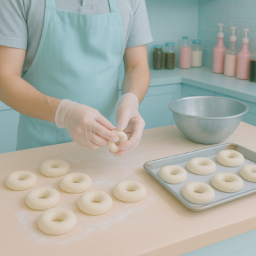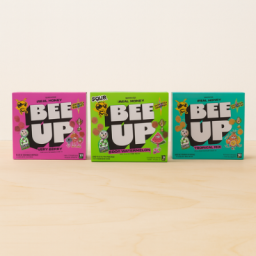
How Is the Food and Beverage Licensing Industry Changing?
The future of food and beverage (F&B) licensing is moving far beyond packaged products on grocery store shelves. Today, brands are leveraging licensing to create immersive experiences — from themed restaurants and pop-ups to lifestyle collaborations and interactive consumer events. This shift was a dominant conversation at Licensing Expo 2025 in Las Vegas, where industry leaders highlighted how consumer expectations are pushing brands toward experience-driven partnerships.
In short, F&B licensing is no longer just about putting a logo on a box of cereal or a bottle of soda. It’s about turning beloved food brands into memorable, shareable, and often Instagrammable experiences.
Why Is Experience-Based Licensing Growing?
The trend toward experience-based licensing in the F&B space is fueled by several factors:
- Consumer Demand for Experiences: Modern consumers, particularly Gen Z and Millennials, value experiences over material goods. Dining in a branded restaurant or visiting a themed pop-up delivers an emotional connection that packaged goods cannot replicate.
- Brand Extension Opportunities: Food brands are capitalizing on their nostalgic or cultural relevance. From McDonald’s x Crocs fashion collaborations to Anheuser-Busch licensing into lifestyle products, the potential to extend a brand into new categories is bigger than ever.
- Revenue Diversification: As retail landscapes evolve and traditional product licensing faces saturation, experiences offer a fresh revenue stream for brand owners and licensees.
At Licensing Expo 2025, Ben Roberts, content director of License Global, emphasized that the F&B category is now the second most sought-after licensing sector, just behind fashion — a major shift in how brands and agents view food as more than just consumable goods.
What Types of F&B Experiences Are Brands Licensing?
The possibilities for experience-based licensing are rapidly expanding. Common models include:
1. Branded Restaurants and Cafes
Iconic brands like Benihana and STK are turning restaurant experiences into globally recognized lifestyle brands through licensing partnerships.
2. Pop-Up Events and Installations
Limited-time pop-ups featuring brands like Eggo, Cheez-It, or even alcohol brands create urgency and social media buzz. Think cereal-themed cafes or immersive dessert museums.
3. Co-Branded Hospitality Ventures
Food brands are teaming with hotels, entertainment venues, or airlines. For example, branded suites, minibar collaborations, or special menu features tied to F&B brands.
4. Retailtainment
Incorporating F&B brands into retail stores through interactive cooking stations, tasting events, or food-themed apparel collaborations.
5. Digital and Virtual Experiences
Brands are increasingly exploring licensing into video games, virtual restaurants in the metaverse, and AR-driven shopping experiences.
What Legal Issues Should F&B Brands Consider in Experience-Based Licensing?
Licensing experiences — especially in the food and beverage sector — involves a different set of legal considerations compared to traditional product licensing:
- Brand Control: Protecting brand integrity in a restaurant or pop-up setting requires robust quality control clauses.
- Health and Safety Compliance: Food service experiences require additional layers of compliance with health codes, safety regulations, and labor laws.
- Territorial and Operational Restrictions: Contracts should clearly define where, how, and for how long the experience can operate.
- Intellectual Property Enforcement: Visual designs, menus, and even customer experiences can be protected under trademark, trade dress, and copyright laws.
- Insurance and Indemnity: Higher liability exposure means requiring detailed insurance and indemnity provisions in licensing agreements.
At Juris Law Group, we regularly advise clients in the food and beverage sector on how to structure these agreements to safeguard their brands while maximizing commercial opportunities.
What’s Next for F&B Licensing? (2026 and Beyond)
The insights shared at Licensing Expo 2025 suggest that this trend is only accelerating. As consumer expectations continue to evolve, we expect to see:
- More cross-industry collaborations between food brands and sectors like fashion, hospitality, entertainment, and technology.
- Sustainability-focused experiences, with eco-friendly packaging, zero-waste pop-ups, and socially conscious licensing models.
- Expansion into digital realms, including AI-driven food apps, virtual restaurants, and branded experiences within gaming environments.
- Global scaling of licensed experiences, especially in emerging markets where demand for U.S. and European brands is rapidly growing.
Frequently Asked Questions (FAQ)
What is experience-based licensing in the food and beverage industry?
It’s the use of licensing agreements to extend food brands into experiences like restaurants, pop-ups, and entertainment venues, rather than just physical consumer products.
Why are food brands focusing on experiences now?
Consumers crave memorable, sharable experiences. Experiences strengthen emotional connections to brands and open new revenue streams.
What are the legal risks in F&B experience licensing?
Licensors must address health compliance, brand control, liability, and IP protection when licensing into restaurants, events, or hospitality ventures.
Is this trend limited to big brands like McDonald’s or Mars?
No. Mid-size and emerging brands are increasingly exploring experience-based licensing to grow their visibility and revenue.
Final Thoughts
The evolution from packaged goods to immersive experiences is reshaping the future of food and beverage licensing. Whether it’s a Cheez-It-themed pop-up or a Benihana-branded hotel experience, brands are discovering that licensing is no longer limited to physical products — it’s about delivering moments.
At Juris Law Group, we help brands navigate this transformation with legal strategies that protect intellectual property, manage risks, and optimize deal structures. Whether you’re a brand owner or a potential licensee exploring this space, our firm can guide you through the complexities of experiential licensing.


